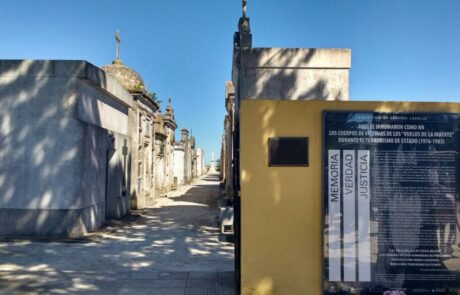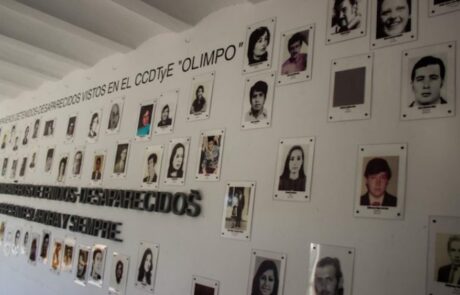— Terrorismo de Estado y políticas de memoria, verdad y justicia —
La última dictadura cívico-militar en Argentina (1976-1983) llevó adelante un plan represivo que tuvo el objetivo de eliminar a aquellos ciudadanos que participaban activamente en la construcción de un proyecto de país radicalmente diferente y disciplinar a toda la sociedad. Las personas eran secuestradas y llevadas a los Centros Clandestinos de Detención(CCD), lugares donde se vivía en forma infrahumana y se realizaban los interrogatorios bajo las torturas más crueles. Los organismos de derechos humanos estiman el número de desaparecidos en 30.000. Se denomina terrorismo de Estado porque el terror fue planificado y ejecutado por el gobierno militar haciendo uso de los recursos estatales y del poder que otorga su ejercicio.
El objetivo económico era implantar un modelo liberal y desindustrializador, eliminando los derechos sociales y laborales de la clase trabajadora.
A pesar de la represión y la violencia hubo organizaciones y personas que hicieron frente a la dictadura denunciando los crímenes y las graves consecuencias de las políticas económicas implantadas.
La experiencia argentina permitió impulsar la figura de la desaparición forzada de personas como crimen internacional. El testimonio y el trabajo de los sobrevivientes y de los organismos de derechos humanos convirtieron a la Argentina en un referente internacional en el campo de la memoria, la consolidación de la democracia y los derechos universales.
Visitaremos espacios que funcionaron como centros clandestinos de detención o estuvieron vinculados al terrorismo de Estado durante la última dictadura en Argentina y que luego fueron reconvertidos y señalizados como sitios de memoria.






